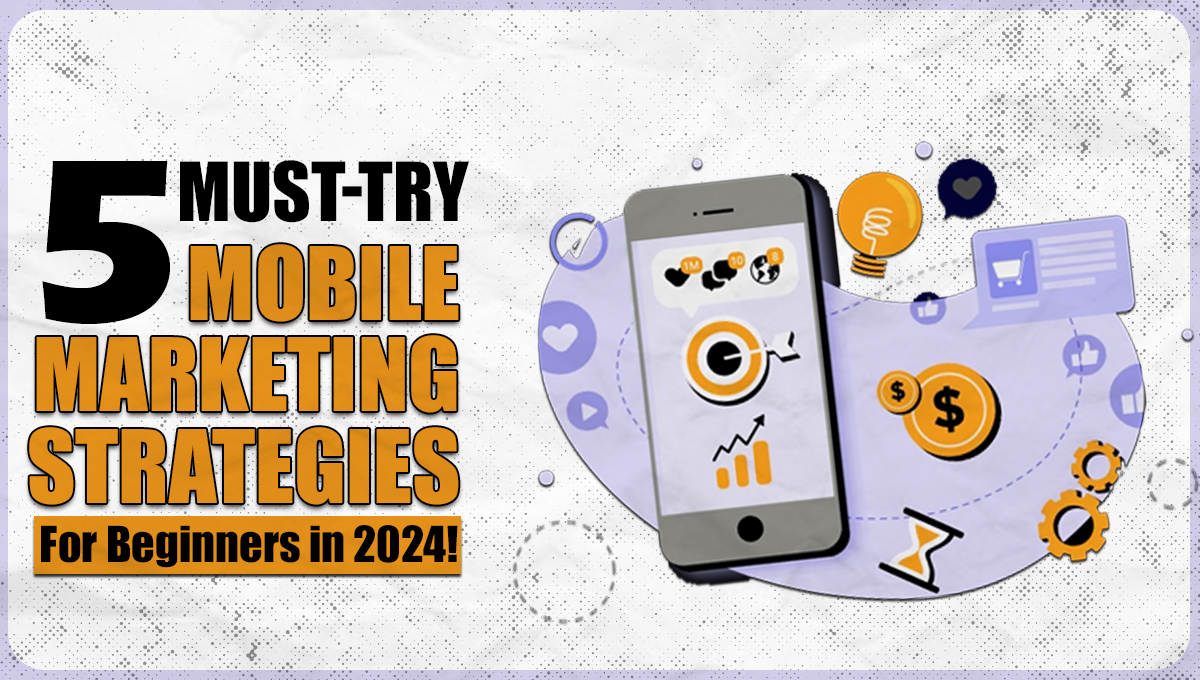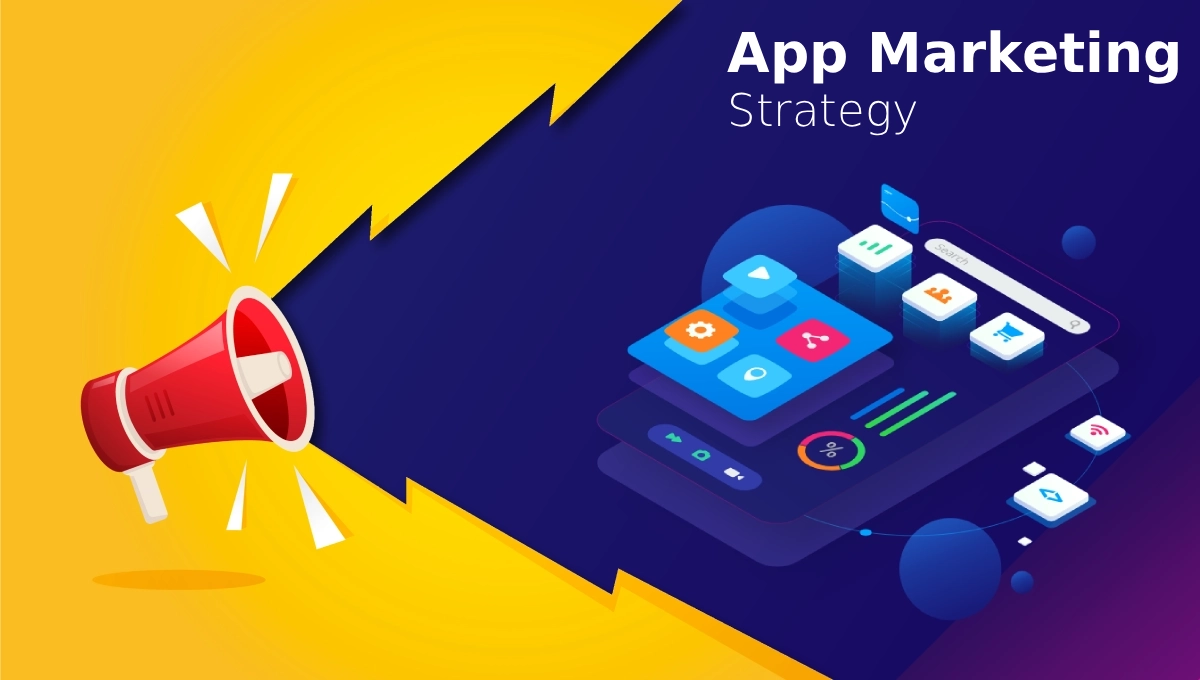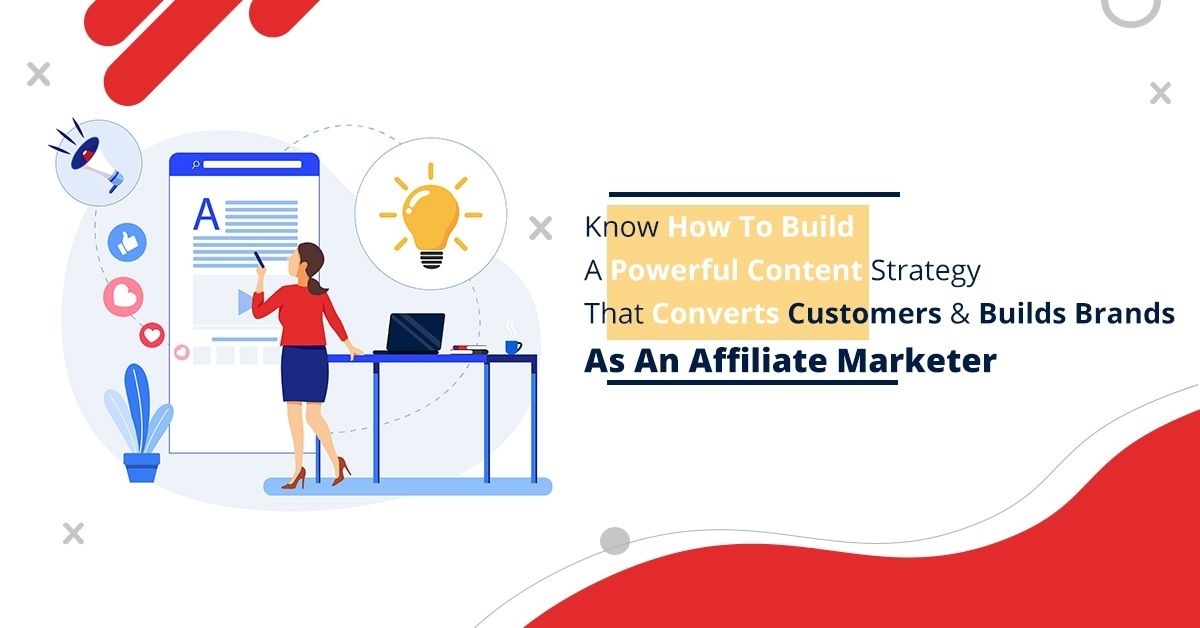In 2025, mobile marketing continues to be an important tool for engaging with audiences on the go. With the added use of smartphones and mobile bias, businesses must borrow effective strategies to connect with their target audience. For newcomers looking to maximize their reach, using mobile marketing is essential. From personalized messaging to position-based targeting, mobile marketing strategies offer immense potential for driving engagement and conversions.
By exercising the best affiliate marketing services in India, businesses can harness tailored approaches to enhance their mobile marketing efforts, ensuring that they reach the right followership with the right message at the right time. Whether it’s through mobile-friendly content, SMS marketing or app-rooted elevations, mastering mobile marketing opens doors to lesser success in today’s digital geography.
Table of Contents
What is Mobile Marketing Strategy?
Mobile marketing strategy is an essential element of ultramodern digital marketing, focusing on reaching consumers through their mobile devices, similar to smartphones and tablets. With the proliferation of mobile technology, businesses have an unequaled opportunity to engage their audience anytime and anywhere.
This strategy involves a variety of ways, including app-based elevations, SMS marketing, mobile-friendly websites and geotargeting, which allows for tailored and localized messaging. By exercising these tools, businesses can produce substantiated experiences that resonate with their target request, eventually driving advanced engagement and transformations.
Likewise, mobile marketing isn’t just about sending general dispatches, it’s about fostering meaningful relations. With the rise of advanced analytics and stoner data, companies can segment their audience based on behavior, preferences and position to deliver hyper-applicable content. For businesses looking to stand out, integrating the best affiliate marketing services in India alongside mobile marketing ensures a seamless strategy that enhances user experience while boosting ROI.
Whether it’s through push notifications, mobile advertisements or interactive content, a well-executed mobile marketing strategy can significantly boost client loyalty and satisfaction, making it a vital tool in a moment’s competitive request.
Top 5 Mobile Marketing Strategies
- SMS Marketing: SMS marketing continues to be one of the most effective ways to reach mobile users. With an open rate of around 98, it guarantees that your communication is delivered directly to the stoner’s inbox. individualized offers,

appointment monuments and event assignments through SMS help businesses engage and retain guests effectively. The key is to ensure that your dispatches are concise, applicable and give value. - Mobile App Marketing: With the proliferation of mobile applications, businesses are optimizing their strategies to request through apps. Push announcements, in-app messaging and fidelity programs within apps produce a flawless experience for users. By integrating data analytics, businesses can epitomize user experiences, enhancing both engagement and transformations.
- Location-Based Marketing: Location-based marketing leverages GPS and location data to deliver personalized offers and advertisements to users grounded on their current or former locales.

This is particularly useful for businesses with physical locales, like restaurants, retail stores and original service providers. By targeting specific areas, businesses can enhance client engagement and drive bottom business to their stores. - Mobile-Friendly Content: Creating content that’s mobile-friendly is essential in a mobile marketing strategies. Responsive websites, streamlined landing runners and optimized content tailored for mobile defenses help improve the user experience. Short, digestible content similar to videos, infographics and concise blogs ensures users remain engaged and encouraged to take action.
- Voice Search Optimization: With the increasing use of voice assistants like Siri, Google Assistant and Alexa, voice search optimization is becoming a crucial mobile marketing strategies. Brands need to concentrate on natural language processing, original SEO and conversational keywords to ensure visibility and relevance in voice search results. Businesses can adapt their content to meet this trend for better reach and engagement.
Mobile Marketing Tools for Success
- Google Ads: Google Ads is a critical tool for mobile advertising, offering extensive tools to help businesses reach their target audience via search, display and YouTube campaigns.

Its broad targeting capabilities enable exact audience segmentation based on demographics, interests and behavior, resulting in high relevance. With its mobile-first approach, Google Ads supports responsive ads that adapt to mobile screens seamlessly, driving clicks and conversions. Real-time analytics and optimization tools empower advertisers to refine their campaigns continuously, maximizing ROI and user engagement. - HubSpot: HubSpot revolutionizes mobile marketing by offering a comprehensive suite of automation tools that integrate seamlessly with dispatch, SMS campaigns and CRM functionalities. It empowers businesses to deliver largely personalized communication acclimatized to the preferences of mobile users. HubSpot’s platform enables real-time shadowing of stoner behavior and campaign performance, ensuring strategic adaptations for better issues. By combining robust segmentation with ease of use, HubSpot fosters stronger customer connections and creates a cohesive experience across mobile platforms, enhancing user engagement and loyalty.
- Klaviyo: Klaviyo is a powerhouse for mobile-centric dispatch and SMS marketing, designed to help businesses make meaningful connections with their followership.

Its advanced segmentation tools allow precise targeting based on user behavior, purchase history and preferences, ensuring every communication is applicable. Klaviyo’s intuitive platform supports automated workflows, personalized messaging and dynamic content that adapts to each user. Ideal for eCommerce and other mobile-focused industries, Klaviyo enhances engagement rates and strengthens brand loyalty through its deep analytics and powerful customer insights. - Braze: Braze excels in delivering personalized, omnichannel marketing experiences by fastening on in-app messaging, push announcements and adaptive content. The platform’s AI-driven perceptivity enable businesses to draft dispatches acclimatized to individual user journeys, boosting engagement and satisfaction. Braze supports real-time commerce, ensuring that mobile users admit timely, applicable updates. Its flawless integration with colorful tools and channels makes it easy to produce cohesive campaigns. By delivering memorable experiences, Braze helps brands make strong connections with users, driving retention and transformations.
- MoEngage: MoEngage stands out as a full mobile engagement platform that uses drive notifications, behavioral targeting and deep analytics to ameliorate stoner involvement.

Its AI-powered perceptivity helps associations understand user behavior and prognosticate preferences, ensuring that campaigns are data-driven and effective. MoEngage’s capability to personalize experiences promotes stronger ties with guests. MoEngage’s automated workflows, segmentation and multi-channel integration enable brands to produce compelling campaigns that drive engagement, improve retention and boost overall customer happiness on mobile platforms.
Conclusion
Mobile marketing is no longer a supplementary element of marketing; it’s a vital part of any successful strategy in 2025. With strategies like SMS marketing, app-based engagement and location-based personalization, businesses can make stronger connections with mobile users. By using the right tools and staying streamlined on trends like voice search optimization, marketers can produce meaningful, engaging and effective mobile experiences that drive conversions and client loyalty.
Frequently Asked Questions (FAQ’s)
- What are examples of mobile marketing?
Mobile marketing encompasses a variety of strategies designed to reach and engage users on their mobile devices. Examples include SMS marketing, which allows businesses to shoot targeted textbook dispatches, mobile app elevations to drive downloads and user engagement, position-grounded offers that give tailored elevations grounded on the user’s preferences, push announcements for real-time updates and alerts and mobile-optimized content that ensures a flawless experience on lower defenses. - What are the benefits of mobile marketing?
The benefits of mobile marketing are vast, including significantly advanced engagement rates due to the ubiquity of mobile devices. It enables precise client targeting, real-time communication and bettered personalization, which enhance user experiences. also, mobile marketing creates a direct, accessible channel to connect with audiences anytime, anywhere driving increased transformations and brand loyalty. - How do you create a mobile marketing strategy?
Start by understanding your audience’s mobile behavior. also choose the right mobile marketing channels, such as SMS, apps or social media. Optimize content for mobile devices, use position data and ensure flawless user experiences. Regularly cover and acclimate your strategy grounded on performance and user feedback. - How do we start a mobile marketing strategy?
Starting a mobile marketing strategy involves understanding your followers’ preferences and mobile usage patterns. Begin by setting clear pretensions, similar to adding app downloads or driving website business. Optimize your website for mobile bias and produce engaging, mobile-friendly content. Use tools like SMS campaigns, push announcements and position-based services to reach users effectively.





